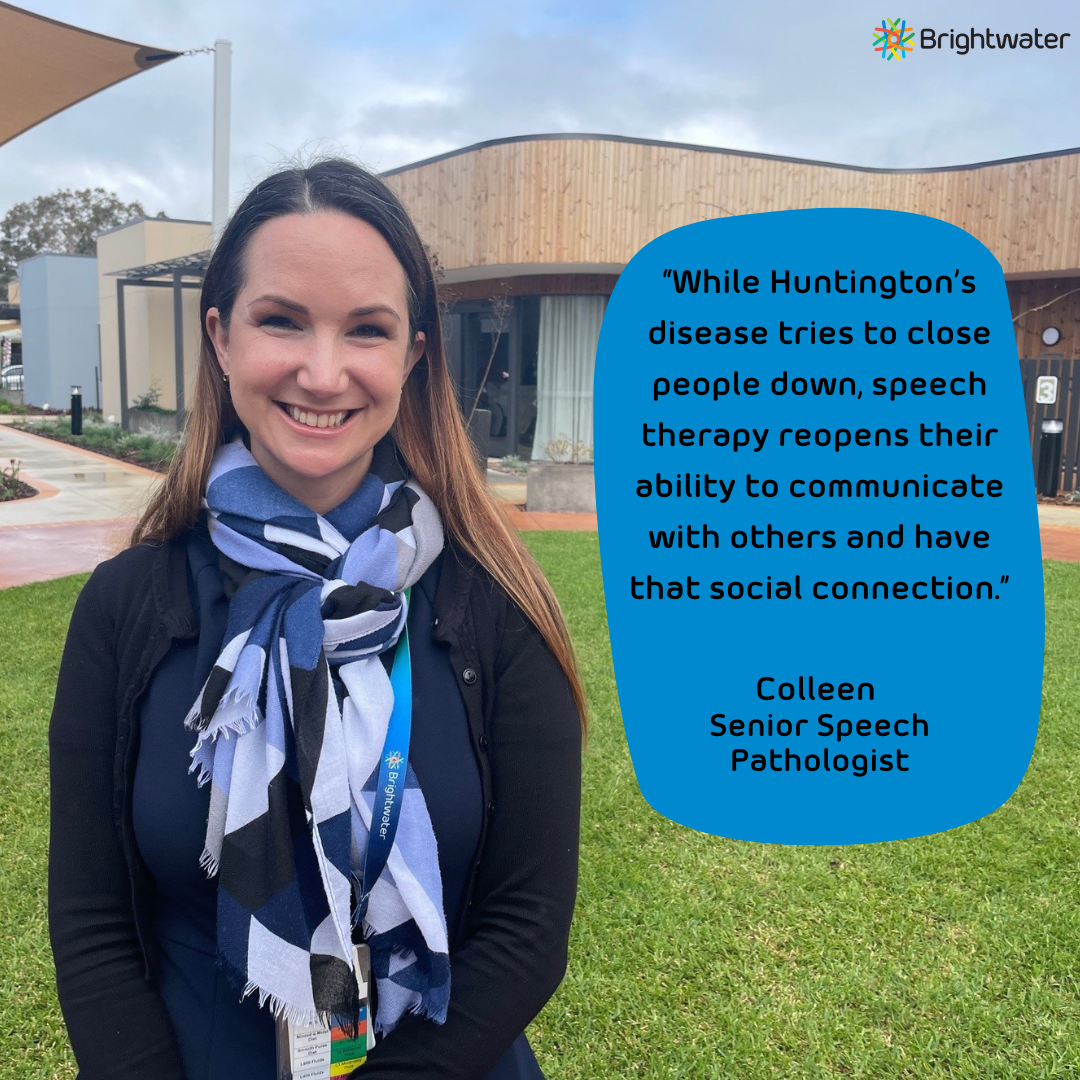
Social interaction and inclusion are vital for every human being.
A person with Huntington’s disease is someone who has lived a regular life and is now losing their skills due to their condition. Huntington’s disease is a progressive and degenerative neurological condition that affects people physically and cognitively. Symptoms begin to show when a person is around 30 to 50 years old.
Huntington’s disease causes dysarthria, a motor speech disorder where involuntary movements, reduced coordination and changes in muscle tone make the speech sound slurred and increasingly difficult to understand.
People living with Huntington’s disease want to be active in the community, and speech therapy helps make this possible.
Despite the debilitating nature of the disease, people living with Huntington’s aren’t sitting around at home. They are going out and engaging in activities they love, from the museum and the beach to drag racing events. As a speech pathologist, the biggest question I ask myself is ‘How can I contribute to make sure my clients are still enjoying life in the best possible way?’
Speech therapy for people living with Huntington’s disease focusses on two main areas: communication and dysphagia (difficulty swallowing).
From a communication perspective, we perform an initial assessment with a client, determine what their goals are and then work to find the best solution for them to retain the ability to effectively communicate with others as independently as possible.
From a swallowing perspective, we assess their abilities and make recommendations on diet, fluids and eating / drinking aids.
As a person’s disease progresses, so does their communication strategies
If a client is in the early stages of Huntington’s disease, we provide strategies to help them overcome the speech difficulties they are having. We practise over articulation, slowing down and using shorter sentences. For example, we would practice saying phrases relevant to the client’s life. One of my clients loves going to cafes, so we would practice phrases such as how to order a coffee and cake.
As the disease progresses and speaking is no longer possible, we look at Augmentative and Alternative Communication (AAC). This means we utilise tools such as a book with pictures or words (low tech AAC) or a device like an iPad (high tech AAC) that the client can use to communicate without needing to speak.
As much as we try to keep the progressive nature of Huntington’s disease at bay, we must always keep planning for the future by asking ourselves what we can do now to prepare for the next stage.
Communication is personal, and our strategies must reflect that.
When a client comes to require a book or a device to communicate, it is important they get to decide what it will say so it mirrors their opinions and who they are as an individual. I had a client that went 10-pin bowling every week and he wanted to be able to say, ‘That was a sh*t shot!’ or ‘That was a great shot!’. While Huntington’s disease tries to close people down, speech therapy reopens their ability to communicate with others and have that social connection.
Help with eating and drinking must be individualised as well.
Huntington’s disease greatly affects a person’s ability to eat and drink. They find it hard to chew and to close off the airway when swallowing, leading to coughing and choking. We all know how it feels to have a drink go down the wrong way. This happens a lot for people living with Huntington’s disease and we want to avoid it.
Thickening fluids makes the liquid move more slowly, giving people extra time to close off their airway. This works well but not everyone likes thickened fluids. In this case, we look at alternative methods such as a Provale cup that disperses 20ml of liquid at a time.
Modifying foods is another big focus. Crumbly food can be harder to control and is more likely to go down the wrong way or be inhaled. Methods like adding sauce help the food to stick together. We may also look at cutting up the food into smaller pieces to reduce the chewing required.
Many clients look forward to enjoying a meal out in the community. In these instances, a speech therapist would work with the client to look at the menu of where they’d like to go and determine what foods are safe and suitable for them. Thinking outside the box where possible allows these people to keep doing what they love.
People with Huntington’s Disease want (and need) to stay involved in conversations.
Listening to a conversation is very different to being involved in one. If a loved one is having trouble speaking, still include them by asking them a question such as what their opinion is on a certain issue. If you have trouble understanding their response, repeat back what you did understand so they only need to repeat the bits you are missing.
Should you like tips or advice on how to communicate better with your loved one who has Huntington’s disease or who is facing communication challenges, reach out to their Speech Pathologist. We carry out Communication Partner Training, where we work with staff, friends and family to provide education on how to best support the individual client to ensure they can stay socially included and communicating independently for as long as possible.



